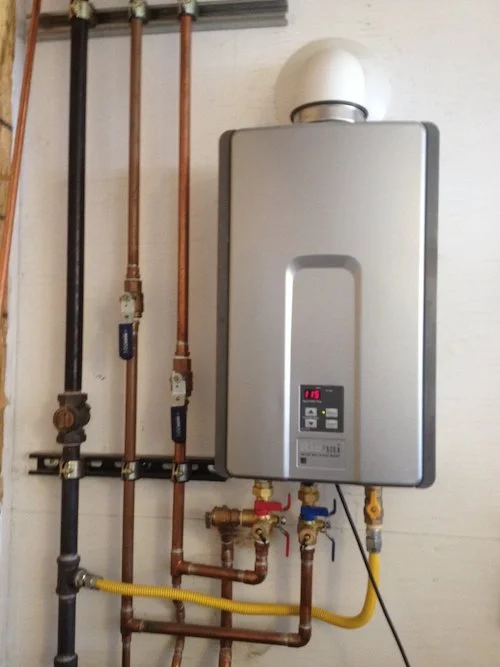Upcoming Water Heater Regulations – How they will impact Californians
 Most homeowners rarely think about water heaters until they turn the “H” knob and cold water comes out. While these appliances are out of sight, so you don’t have to think about them, the time will come when you have to. If you do think of your water heater ahead of time, you will save on emergency plumbing services and your overall electrical bill.
Most homeowners rarely think about water heaters until they turn the “H” knob and cold water comes out. While these appliances are out of sight, so you don’t have to think about them, the time will come when you have to. If you do think of your water heater ahead of time, you will save on emergency plumbing services and your overall electrical bill.
Water heaters are one of the most inefficient appliances in your home, with Energy.gov citing that up to 18% of your electricity costs come from heating water. Learn more about the types of water heaters and the high-efficiency water heating technology known as a heat pump water heaters.
Types of Hot Water Heaters
While we focus on heat pump water heaters in this article, it can be helpful to understand the various types of water heaters available to you.
Traditional storage water heaters have a large storage tank that fills and heats water, keeping it ready at any time of the day or night. These water heaters typically heat the water with electricity, natural gas, or propane.
Tankless or demand-type water heaters do not have a storage tank. Instead, tankless water heaters heat the water directly through the pipes to your shower or faucet. If sized correctly to your home, you shouldn’t worry about running out of your hot water supply. However, if you have guests over, this on-demand water heater may not meet the demand.
Solar-powered water heaters use the sun’s heat to warm up stored water. These can save San Diego homeowners significantly on energy bills and are suitable for the environment. Still, they are slower at heating water and run out much quicker on average.
Heat pump water heaters gather surrounding warmth from the air and compress it to heat the water, which results in high efficiency and significant cost savings compared to other methods.
Phase Out Gas-Fueled Water Heaters & Furnaces by 2030 – What That Means For You.
A California state board has voted to slowly phase out gas-fueled furnaces and water heaters to reduce the carbon footprint and pollution. Starting in 2030, all new water heaters and furnaces must be electric. This new law does not mean that people will have to go out of their way to buy a new furnace, but when it breaks, they will have to replace them with a model that uses electricity.
While some homeowners worry about the cost, electric heaters and appliances are more efficient overall. Instead of a traditional system where you’re heating and cooling the entire home, you can heat or cool particular bedrooms and living areas.
California homeowners can take benefits of the Inflation Reduction Act passed this summer that provides rebates for installing an electric HVAC system like a heat pump — up to $8,000 depending on your income level. Also, California is offering a rebate, starting at $3,000 per unit.
The state mandates that by 2026, all new homes must have electric heaters or appliances.
Contact Daniels Plumbing & Son today for all Water Heater Installation & service needs with 2 location in San Diego and Long Beach, CA.
